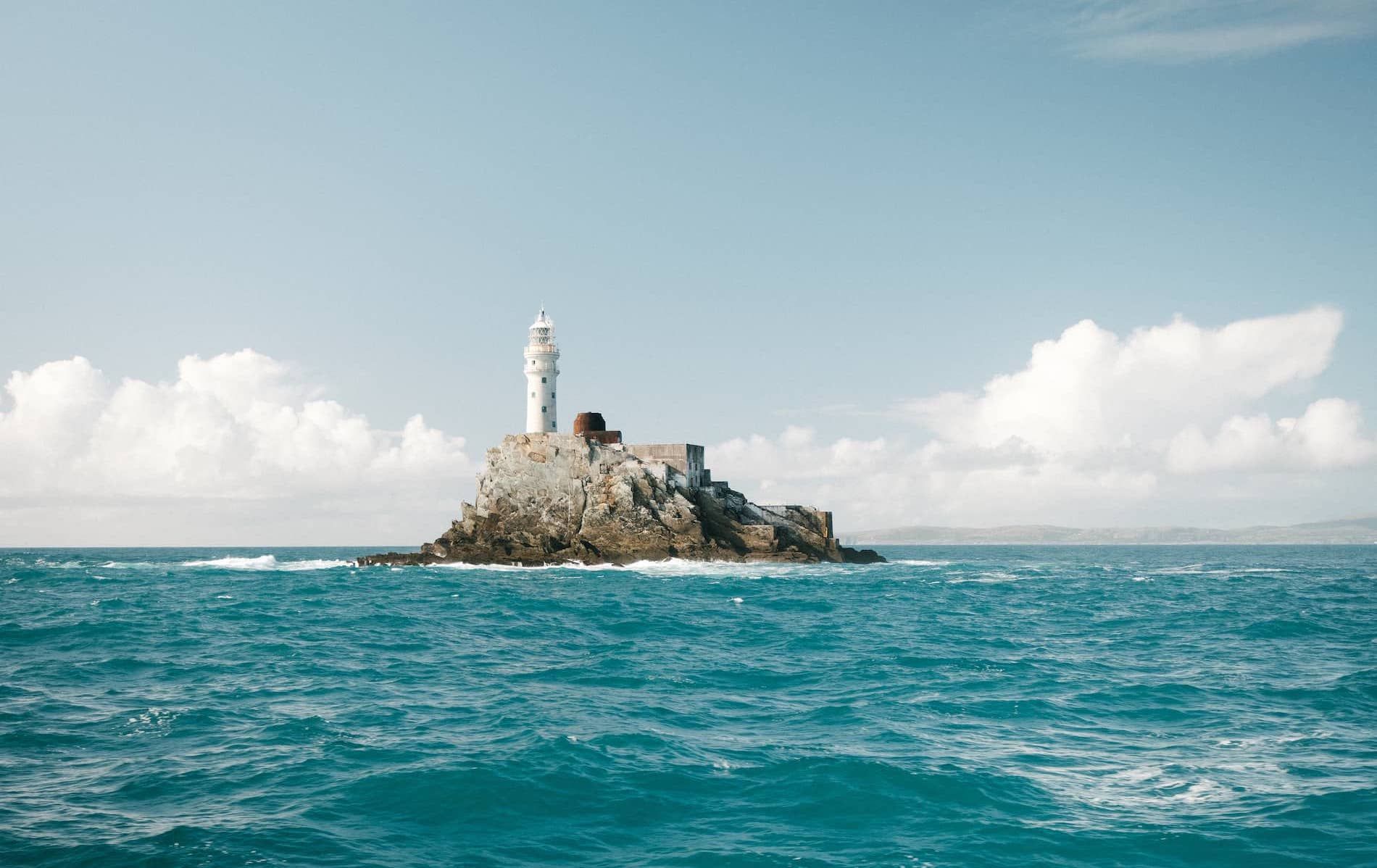

Accessibility
Ireland is delighted to welcome visitors with special needs and reduced mobility, and services and amenities are always improving
What's on this page?
Top tip
The National Journey Planner system provides door-to-door information on all available travel options for journeys to, from, and within the Republic of Ireland.
In addition to this, you'll find general travel information for people with mobility difficulties.

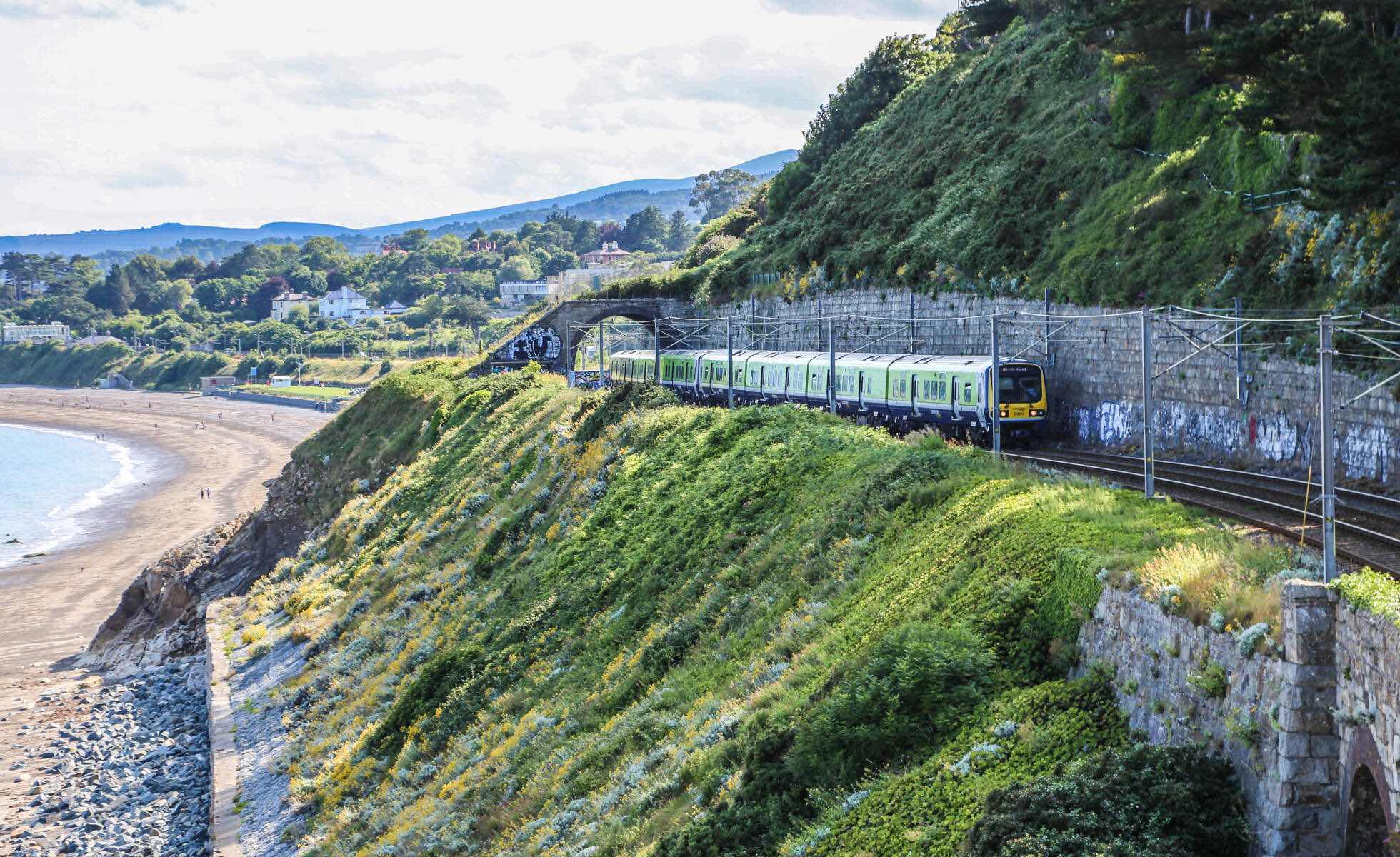
Getting here
Airports
Under the law, if you are disabled or have reduced mobility, you can receive assistance when you fly to and from Europe and the island of Ireland. To ensure all facilities can cater to your needs, it is advised that you ask for assistance at least 48 hours in advance when travelling. Airports must provide special assistance to get you to and from your flight, free of charge, including check-in and getting through security. Flight Rights can also assist you in understanding the type of facilities you can expect when travelling by air.
Ferries
The EU's regulations on maritime travel aim to ensure that every passenger can enjoy safe travel by sea, regardless of mobility. In Ireland, these guidelines were created so journeys by ship, boat or ferry are easier for everyone, including those with a disability, or those travelling with children or luggage.

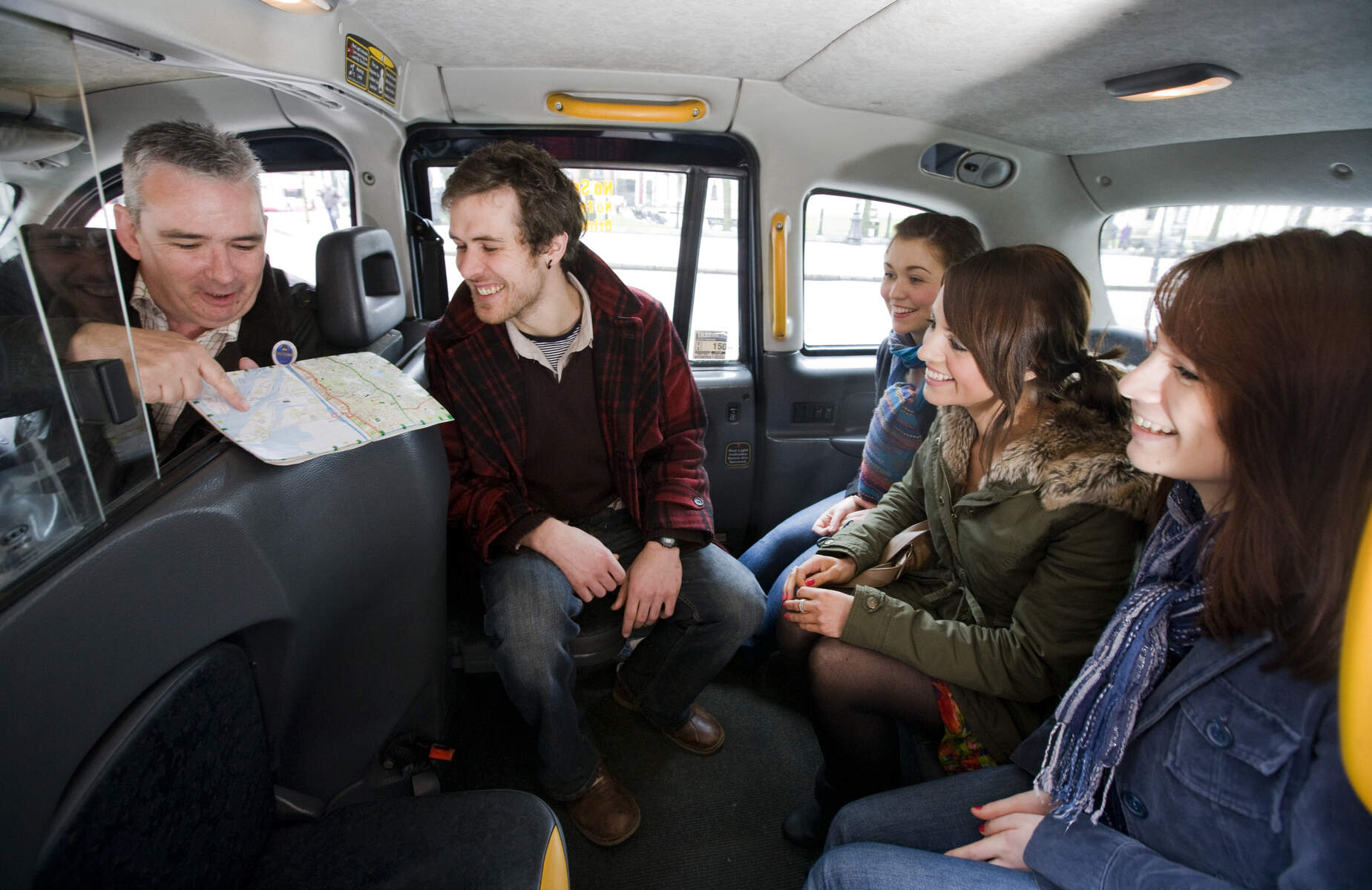
Accessible taxis
Wheelchair-accessible taxis in the Republic of Ireland have a wheelchair icon on the roof of the vehicle, so they have been specifically modified to have specialist equipment including ramps, wheelchair anchorages and suitable seatbelts.
The National Transport Authority maintains a register of all wheelchair-accessible taxis and hackneys. If you have difficulty obtaining an accessible service, the Authority may be able to provide you with contact details for an operator in your locality. Call its Information Line on +353 761 064000.
Accessible taxis
There are currently four types of taxi identified by the colour of taxi plate; green, yellow, white and blue.
White and blue licence plates are issued to some taxis that operate like buses – they charge passengers an individual fare on some routes. These taxis are not required to have a meter but are wheelchair accessible.
A yellow licence plate means that the taxi can be hailed in the street or picked up from designated taxi ranks when the roof light is on. These taxis are wheelchair accessible and will have a taxi meter.
A white licence plate means the taxi can be pre-booked or hailed in areas outside a five-mile radius of Belfast city centre. These taxis are not required to be wheelchair accessible or have a meter.
A green licence plate means that the taxi must be pre-booked either in person, at a depot, or by phone. The majority of these are not wheelchair accessible, so it is best to request a wheelchair-accessible taxi if you need this, although this is not guaranteed.

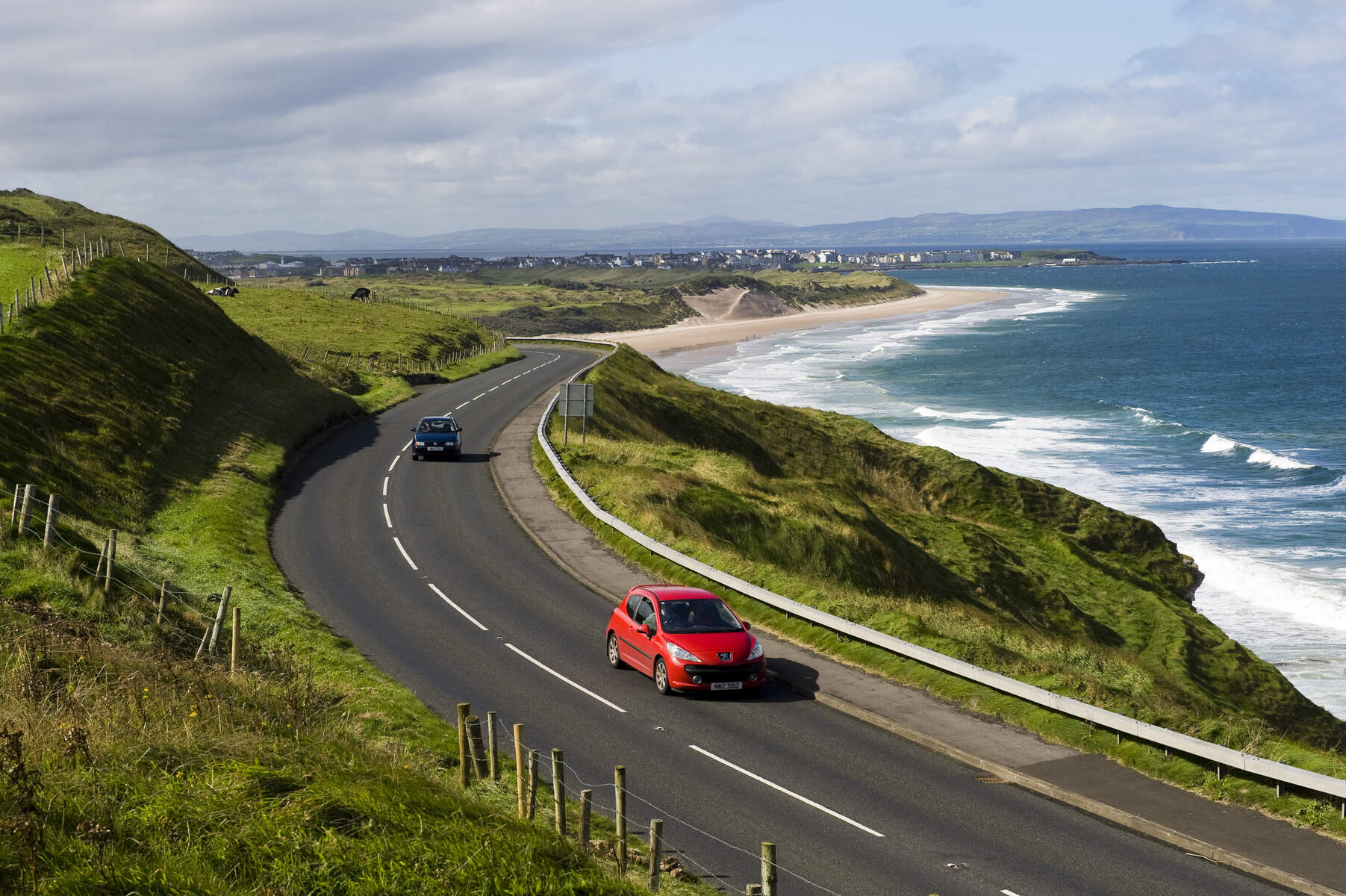
Car rental
Motability Ireland provides car rentals to reduced mobility customers for use all over the island of Ireland. Their vehicles come with fully comprehensive insurance and 24-hour AA roadside assistance. The staff can even organise airport/ferry collections and drop-offs for you.
Car parking
There is a range of parking facilities available to people with disabilities in towns and cities throughout Ireland. They are always located in "prime" parking spots beside building entrances, in city/town centres, etc. These parking bays are clearly marked for use by people with disabilities by both signs and road markings. You must display a disability badge (known as a Blue Badge in Northern Ireland and a Disabled Person’s Parking Card in the Republic of Ireland) when parking in spaces reserved for people with disabilities. It’s advisable to check ahead of travelling if your parking permit will be valid in Northern Ireland or the Republic of Ireland.
Although local authorities have no legal obligation to provide parking bays for people with disabilities, a certain number of spaces are available in all local authority on-street parking areas, local authority car parks and public building car parks. The location of these spaces will be laid down in local authority bye-laws.
For more information on disabled car spaces contact the local authority/council of the area in which you’re visiting.

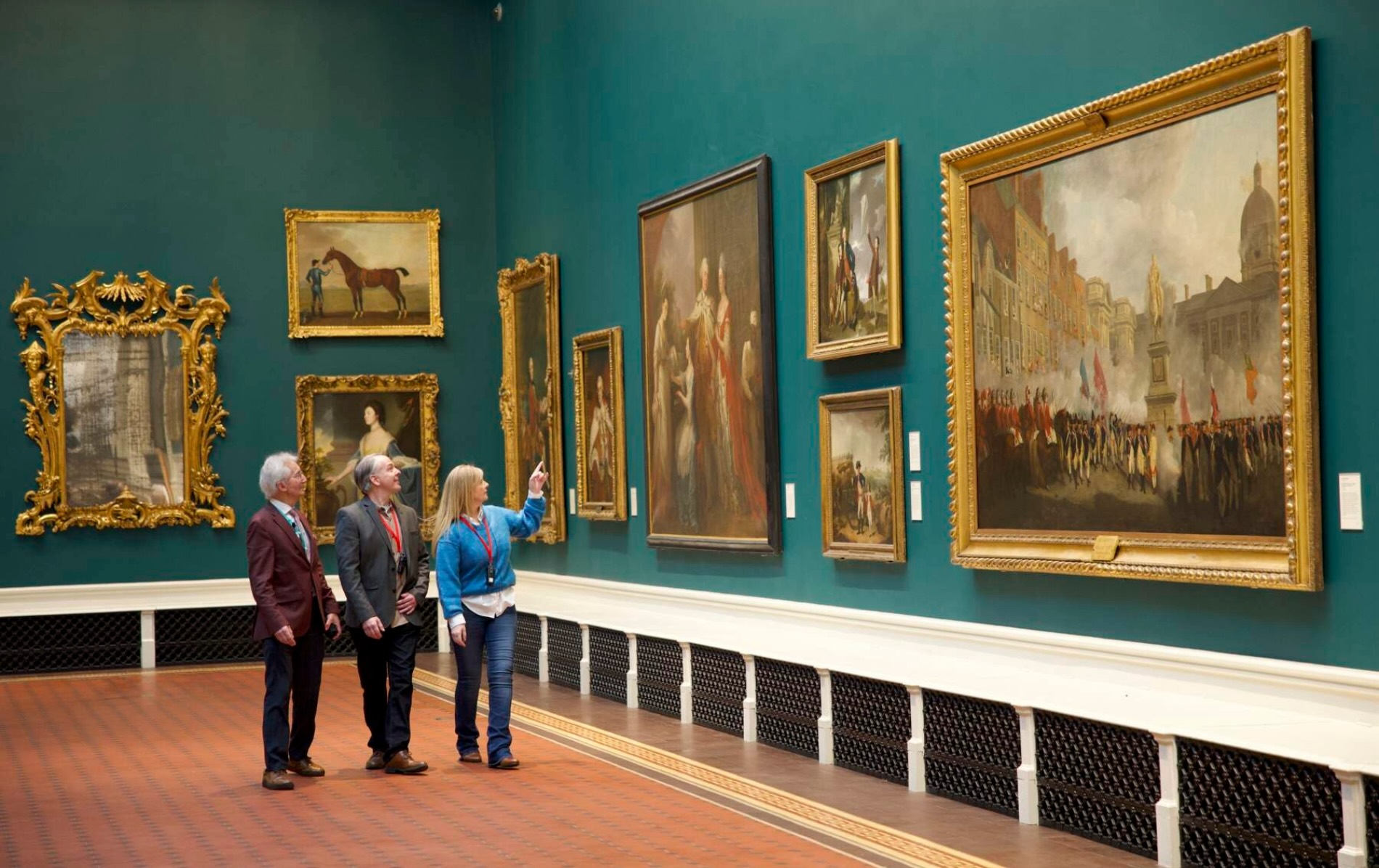
National Gallery of Ireland, Dublin city
Accommodation
Disabled Holidays is a great resource with a list of accommodation options that offer disabled facilities.
Disabled Friendly Hotels provides a wonderful database of hotels with features that accommodate special needs. Each hotel partner is required to provide information on its accessibility and services, and the site includes reviews to confirm the validity of this information.
Attractions
Some of Ireland’s historic sites, such as abbeys, castles and ruins, may not be as accessible as modern attractions such as Titanic Belfast. Castles and towers may have a first floor that is accessible; however, they are less likely to have lifts. Heritage Ireland manages many of Ireland’s heritage sites, providing information on each site’s accessibility. In Northern Ireland, the National Trust runs sites such as the Giant’s Causeway and has great access information for each site including parking, toilets and the grounds.
Guide dogs and assistance dogs
The law in both the Republic of Ireland and Northern Ireland ensures that guide dog and assistance dog owners have the right to access all forms of public transport, accommodation and food establishments. It is important that you carry suitable identification for your guide dog or assistance dog.













